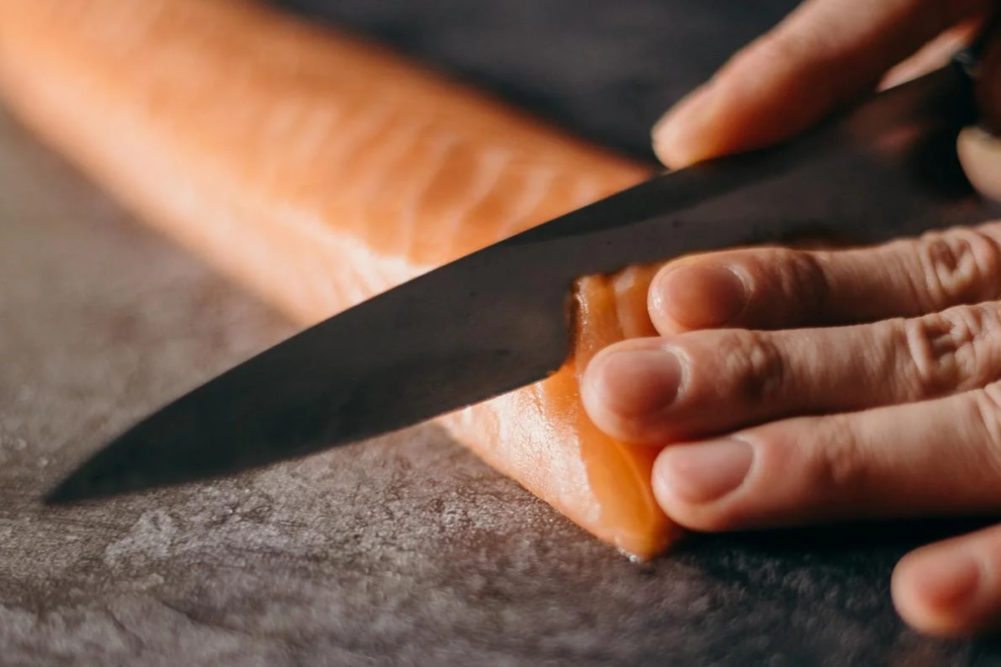CULVER CITY, CALIF. — Algae, fungi and air molecules are just some of the protein sources used by companies participating in a $15 million innovation competition hosted by XPRIZE.
The nonprofit organization launched Feed the Next Billion, a four-year competition focused on accelerating innovation within alternative meats. The competition asks innovators to develop multiple consistent cuts of a meat alternative that replicates the look, taste, smell, feel, cooking behavior and nutritional properties of a structured fillet of fish or chicken breast, while having a lower comparable environmental footprint.
Spurring innovation in chicken and fish alternatives may help overcome the challenges needed to address the 815 million people facing chronic malnourishment today, said Caroline Kolta, XPRIZE’s Feed the Next Billion program lead. It also will help prepare for a future with an even larger global population.
The world’s population is expected to increase to nearly 10 billion by 2050, she said. That’s more than 1 billion additional people seeking out meats and proteins in their diets, particularly among the growing middle classes.
“While the alternative meat industry has achieved improvements on ground or minced products such as beef patties and chicken nuggets, there is still a lack of products on the market for structured or whole cuts of chicken breast and fish fillet,” Ms. Kolta said. “But as populations and incomes rise, the demand for all types of meat, including chicken and fish, is expected to rise, too.”
Plant-based, cell-based, blended and other approaches are eligible for the competition, which is accepting late registrations through December 2021. More than two dozen companies from 14 countries already have been named semifinalists.
In the running to Feed the Next Billion
Plant protein startup The Better Meat Co. is among the semifinalists, alongside French startup Umiami and Japan-based The PlantEat. Several plant-based seafood companies also have tossed their hats into XPRIZE’s ring, including India-based Brew51, New Zealand-based SeaSpire and Austria-based Revo Foods.
Other semifinalists are combining fermentation with modern technology to create their chicken and fish alternatives. Argentinian startup Kernel Mycofoods uses precision fermentation to transform fungi into a mycoprotein that has a higher protein digestibility corrected amino acid score than beef, soy and wheat gluten. The Buenos Aires-based company leverages artificial intelligence and computer vision technology to adjust the fermentation process and achieve different outcomes for its protein.
“We process the protein by removing enough water to put it into the type of ingredient we want to create,” said Miguel Neumann, chief financial officer at Kernel. “If you want something that resembles animal meat, you’re probably going to leave about 20% solids to 80% water.”
Kernel is working with partners to develop both fish and chicken alternatives for the XPRIZE competition.

“We’re working on both sides and trying to see which one preforms better,” Mr. Neumann said. “What we believe is going to be key for us is making the most accessible analogue. Fingers crossed, we will make it across the line and say, ‘Not only do we have the most sustainable product, but it’s also the cheapest and most nutritious.’”
Other fermentation-focused semifinalists include Boulder, Colo.-based Meati Foods, which uses mycelium’s branching fibers to mimic the texture of whole-cut meats, and Scotland-based ENOUGH, maker of ABUNDA mycoprotein.
Two North American startups are highlighting algae as their star ingredient. Canada-based Smallfood, Inc. uses fermentation to extract protein from microalgae, while San Francisco-based Kuleana develops sushi-grade tuna alternatives featuring algae, koji and radish. Bay Area startup Air Protein, meanwhile, is developing a process for transforming the basic elements of air into protein for use in meat analogues.
Cell-based companies including GOOD Meat, Novel Farms and Wildtype in the United States also are competing to develop chicken and fish products alongside innovators in Japan, China, South Africa, India and Singapore. The cultured meat companies bring a variety of scale and size to the competition. BlueNalu, a cell-based seafood company with more than $84 million in funding, was named a semifinalist alongside months-old Canadian startup Another Fish.
Nick Bedi was a graduate student studying electrical engineering when he created Another Fish this summer after learning about the XPRIZE competition.
“My master's program is very heavily related to cultured meat, so I got together a group of students and created a proposal,” he said. “We were really excited to be accepted as a semifinalist.”
Another Fish aims to grow whitefish cells as a substitute for “real” fish in seafood recipes. Its product requires only one cell line grown in a media free of hormones and antibiotics. The company recently was accepted into District 3, a startup accelerator partnering with XPRIZE for the competition.
“They have a biology hub that we’ll be using to produce a prototype over the next couple of months,” Mr. Bedi said. “Then, we can further refine it and start looking at scaling up.”
Semifinalists will spend the next year developing the first iteration of their products. At the next round of testing in 2022, the teams will cook their chicken breast or fish fillet for judges with only salt, pepper and oil — meaning they’ll have no additional flavors to hide behind when the products are tested on structure, cookability and sensory properties. Up to 10 finalists will be chosen to split a milestone award of $2.5 million.
Finalist teams will enter one last round of solution development before final judging in 2024. At the finals, products will be cooked by professional chefs who will assess ease of handling and cookability first-hand, as well as product incorporation into more than one international cuisine. XPRIZE will award a first-place prize of $7 million, plus second- and third-place prizes of $2 million and $1 million. A bonus prize of $2 million will be awarded to a team that develops a whole animal-origin-free growth media at the lowest production cost.





